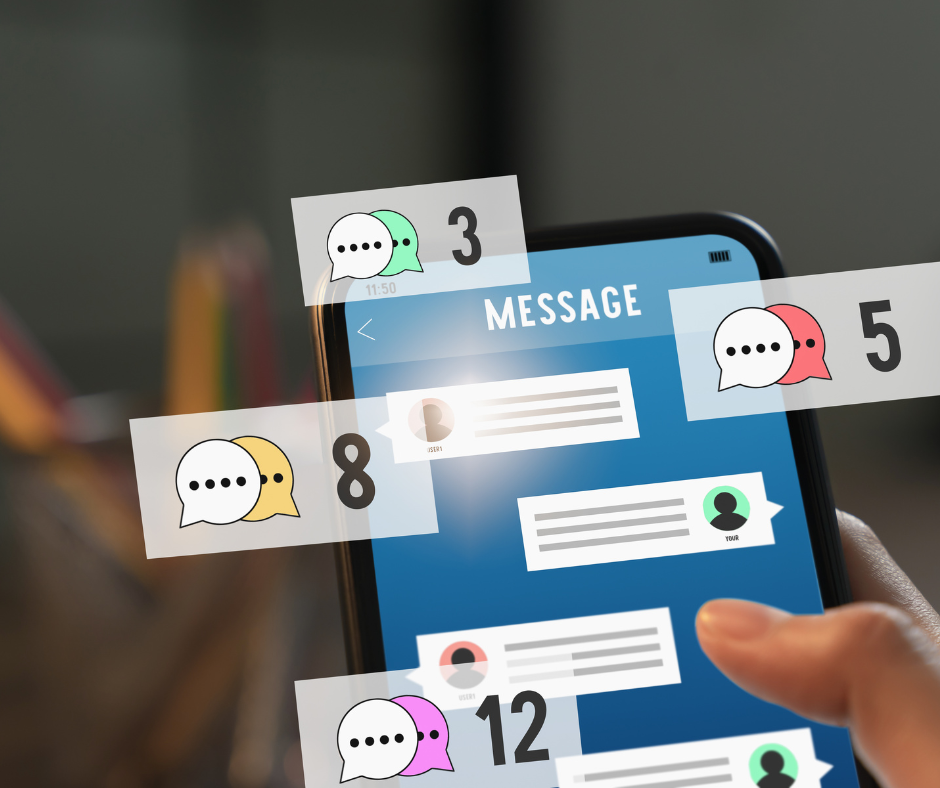Screens, Sleep & Stress: Are Your Devices Keeping You Wired?
It’s late at night. You’re scrolling through your phone, promising yourself you’ll put it down “after one more post.” An hour later, you’re wide awake. And when you finally do fall asleep, it’s restless.
Sound familiar?
In today’s hyperconnected world, digital devices are part of nearly every moment of our lives. But while they bring convenience, connection, and entertainment, they also come with hidden costs. Blue light, constant notifications, and the stress of being “always on” can wreak havoc on your sleep, your nervous system, and even your long-term health.
This article explores the connection between screens, sleep, and stress and offers a practical 7-day digital detox plan to help you reclaim your rest and restore balance.
The Digital-Sleep-Stress Connection
1. Blue Light and Melatonin Suppression
Your body runs on a natural circadian rhythm… a built-in clock that regulates sleep and wake cycles. Exposure to bright light at night, especially the blue light from screens, can confuse that rhythm. Studies show that evening screen time suppresses melatonin, the hormone that tells your body it’s time to sleep.
The result? You may fall asleep later, sleep less deeply, and wake up groggy.
2. Constant Stimulation and Nervous System Overload
Every ping, vibration, and notification is a mini stressor. Even if you don’t respond right away, your brain registers the alert. Over time, this keeps your nervous system in a heightened state of alertness, which is the opposite of the calm, parasympathetic “rest and digest” mode needed for deep sleep and recovery.
This explains why many people feel “wired but tired” — exhausted, yet unable to fully relax.
3. The Stress of Always Being Available
We live in a culture that prizes productivity and availability. But being tethered to devices creates invisible pressure: to answer emails late at night, to respond instantly to texts, to keep up with social media.
This sense of being “on call” all the time adds to chronic stress, which can lead to:
Increased cortisol levels
Higher risk of anxiety or burnout
Difficulty winding down before bed
How Screens May Be Disrupting Your Health
If you’ve ever wondered “are my devices affecting my sleep quality?”, the answer is likely yes. Research continues to uncover links between screen use and:
Shortened sleep duration
Difficulty falling asleep
Lower sleep quality
Increased stress and anxiety
Reduced focus and productivity the next day
It’s not just about sleep, either. The effects of screens on the nervous system add up over time, quietly draining your energy and resilience.
Signs You’re “Digitally Wired”
You may be experiencing digital overload if you notice:
Feeling restless or “on edge” at night
Scrolling long after you intended to sleep
Waking up unrefreshed
Checking your phone first thing in the morning (and last thing at night)
Difficulty focusing without background screen stimulation
Feeling anxious when you’re away from your phone
If these sound familiar, your devices may be playing a bigger role in your stress and sleep challenges than you realize.
The 7-Day Digital Detox Plan
The goal isn’t to abandon technology. It’s to reset your relationship with it. Try these simple digital detox steps for one week and notice how your sleep and stress levels respond.
Day 1: Audit Your Screen Time
Use your phone’s built-in tracker to see how much time you spend on social media, email, and entertainment.
Awareness is the first step.
Day 2: Create Tech-Free Zones
Keep phones and tablets out of the bedroom.
Replace late-night scrolling with reading, journaling, or meditation.
Day 3: Turn Off Non-Essential Notifications
Disable social media alerts, news pings, or any non-urgent updates.
Protect your attention and reduce mini stress spikes.
Day 4: Schedule Screen-Free Breaks
Take short breaks throughout the day without screens.
Step outside, breathe deeply, and reset your nervous system.
Day 5: Power Down Before Bed
Set a “digital sunset” 60 minutes before bedtime.
Dim lights, stretch, or enjoy calming rituals that support melatonin production.
Day 6: Reconnect Offline
Plan a phone-free meal, walk, or conversation.
Strengthen real-world connections that lower stress naturally.
Day 7: Reflect and Reset
Notice changes in your sleep quality, energy, and focus.
Decide which habits to keep long-term.
A Balanced Approach to Technology
Screens aren’t the enemy; it’s how and when we use them that matters. By creating healthy digital boundaries, you support your nervous system, protect your sleep, and reclaim your energy.
Even small changes, like charging your phone outside the bedroom or setting app limits, can help you feel calmer, clearer, and more in control.
Final Thoughts
Your devices are powerful tools, but they shouldn’t control your health. If your phone is the last thing you see before sleep and the first thing you grab in the morning, it may be time to reset.
Try the 7-day digital detox plan and see how your body and mind respond. You may be surprised at how quickly better sleep and lower stress return when you give yourself a little digital breathing room.


